The Ministry of Education announced the list of national competitions for primary and secondary school students.
Cctv news(Reporter Kan Chunyu, Xu Yeqing): Recently, the Ministry of Education announced the list of national competitions for primary and secondary school students in the 2020-2021 school year. There are 35 events in the list, which are divided into three categories: natural science literacy, comprehensive humanities literacy and art sports.
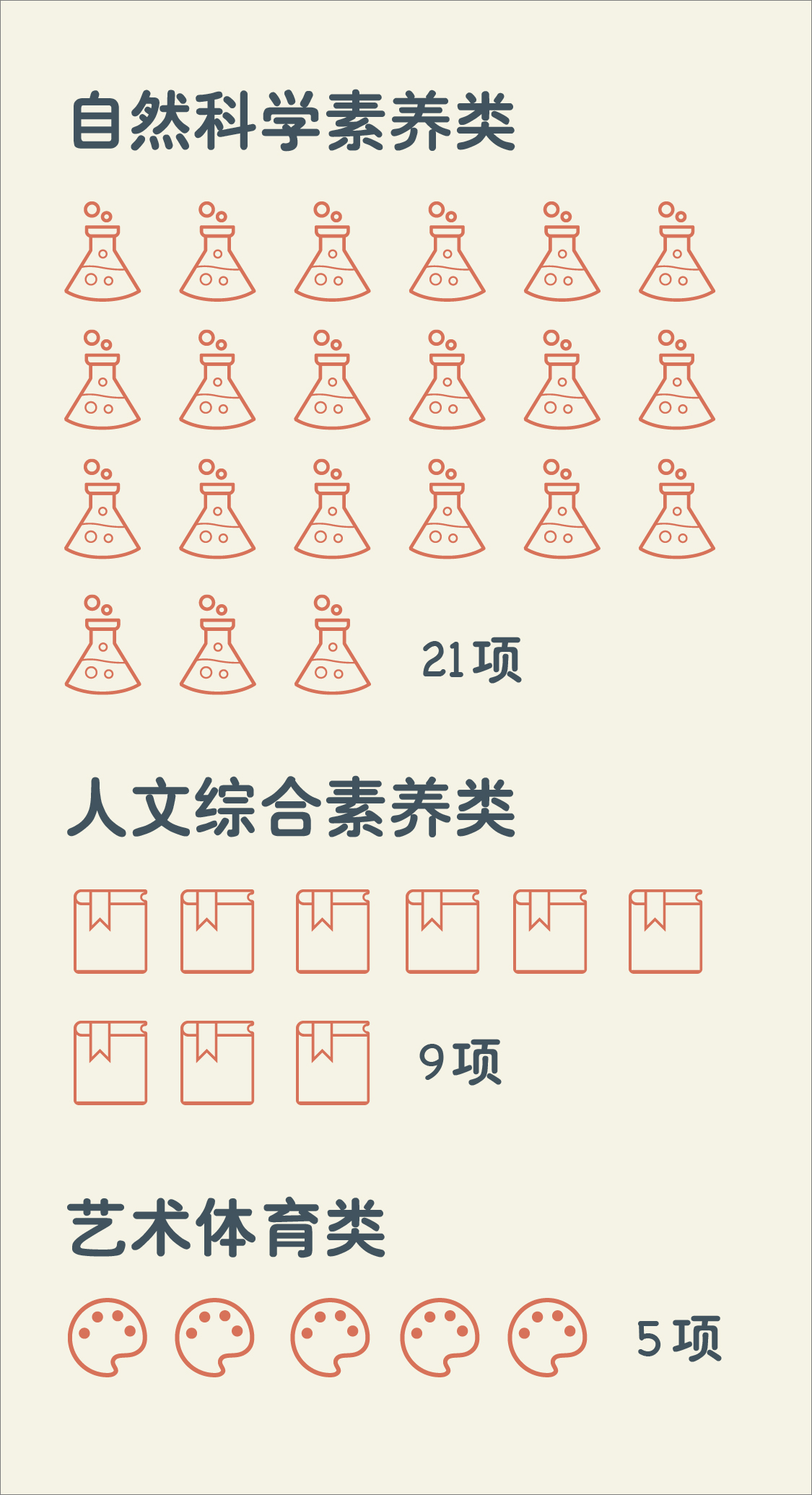
The national middle school students’ mathematics, physics, chemistry, biology and informatics Olympic competitions were all selected, but the national youth science and technology innovation competition, which was still on the list last year, was not included.
In the compliant competition, innovation, Olympics, popular science, artificial intelligence, and robots are high-frequency words in the name of the competition.

The organizers of the contest are mostly societies, associations and foundations. China Association for Science and Technology undertakes 4 events and is the organizer of the most national competitions. China Contemporary Literature Research Association ranked second with two events. Beijing Foreign Studies University, which hosted the FLTRP Cup National Middle School Students’ Foreign Language Literacy Competition, is the only institution in the list.
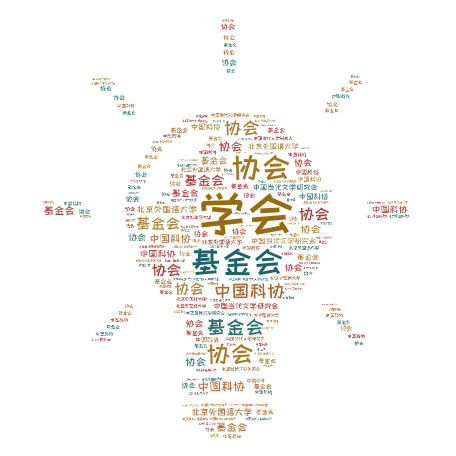
Of the 35 competitions, only one is not for senior high school students. Compared with last year, vocational high schools and technical secondary schools also have their own compliance competitions.

In order to control all kinds of illegal competition activities and reduce the extracurricular burden of primary and secondary school students, in September 2018, the Ministry of Education issued the "Administrative Measures on National Competition Activities for Primary and Secondary School Students (Trial)". It is pointed out that local education administrative departments at all levels, primary and secondary schools and various educational institutions are not allowed to organize or organize primary and secondary school students to participate in competitions for primary and secondary school students with the words "National", "National" and "Greater China" outside the list, and are not allowed to provide venues, funds and other conditions for illegal competitions. The "Measures" particularly emphasize that the competition and the results produced by the competition are not used as the basis for enrollment in primary and secondary schools.
In April 2019, the Ministry of Education announced the first batch of lists, including 29 events.
Compared with the list in the past two years, CCTV reporters noticed that the classification and activities of the competition have changed a lot.
In 2019, the competition activities were divided into scientific and technological innovation, discipline and art and sports. In this year’s list, except for art and sports, the other two items were changed to natural science literacy and humanities comprehensive quality.
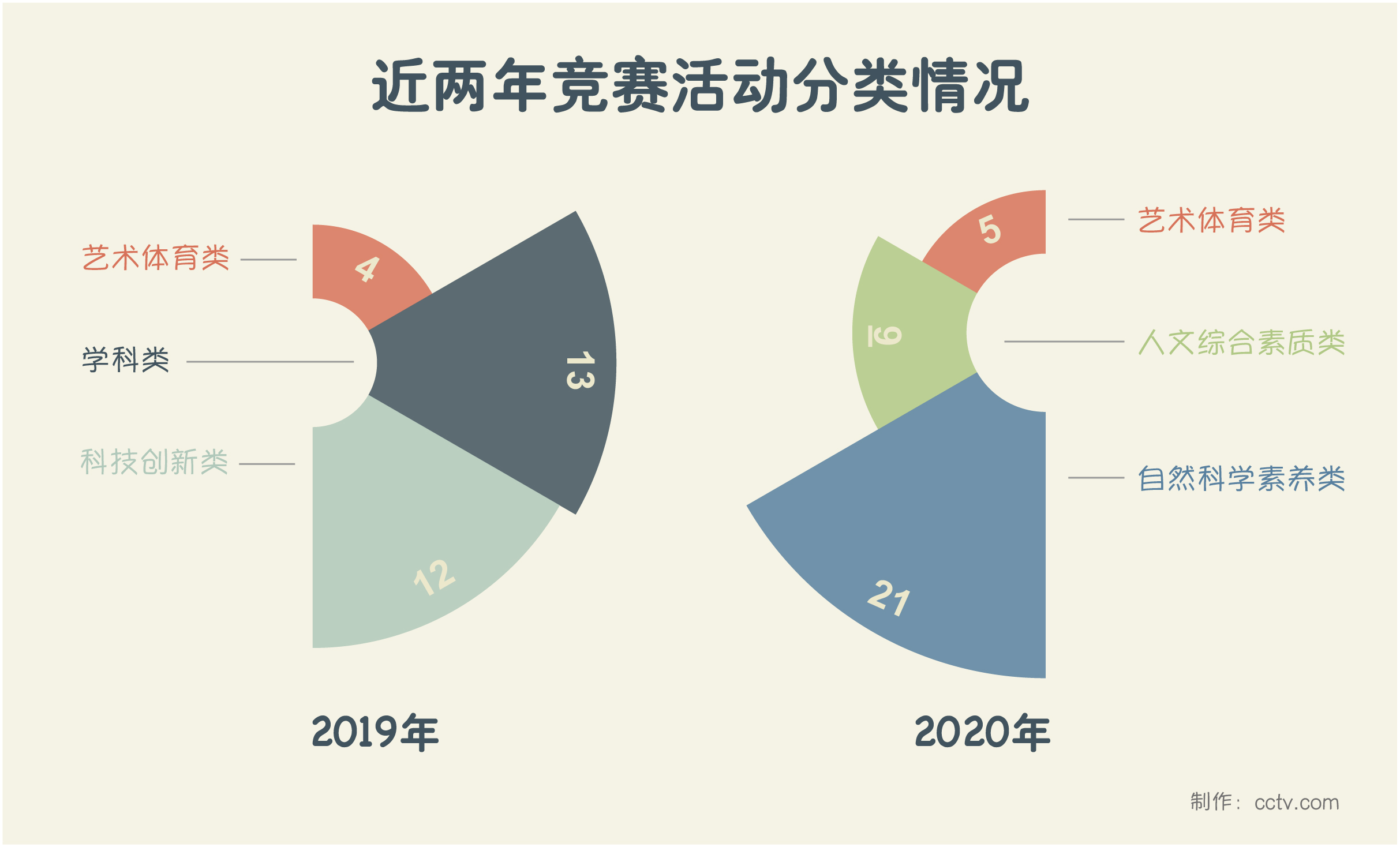
Eight competitions have disappeared from the list, including this year’s National Youth Science and Technology Innovation Competition, which was caught in a dispute over the falsification of award-winning works.
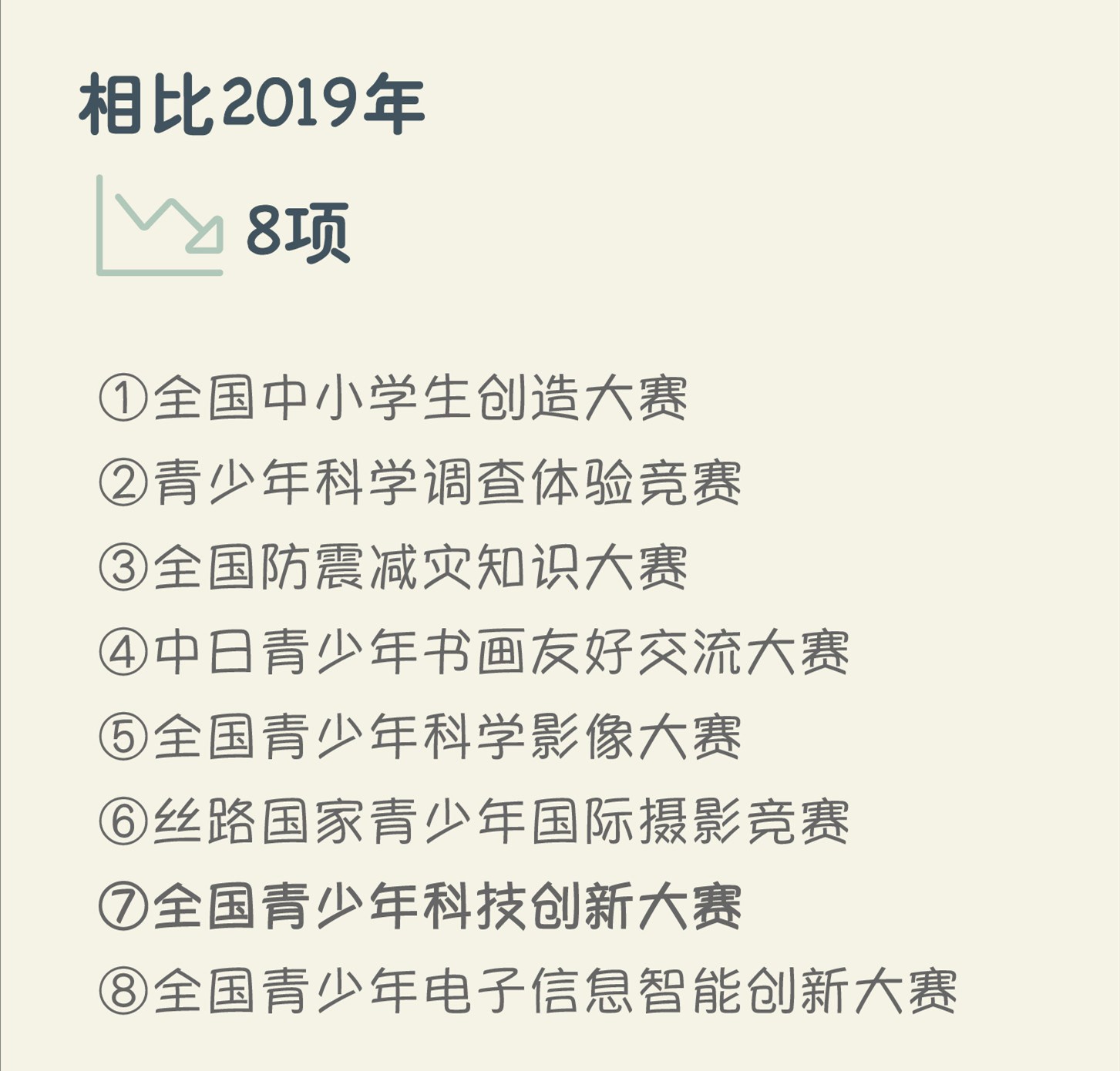
In July this year, the sixth-grade primary school students’ research on cancer won the third prize of the 2019 National Youth Science and Technology Innovation Competition, which was questioned by the public. The General Office of the Ministry of Education issued the Notice on Further Strengthening the Management of National Competition Activities for Primary and Secondary School Students. It is pointed out that some problems have been exposed in the recent organization of individual competitions, such as lax evaluation and suspected parents doing it for them, which have caused adverse effects. The Notice requires strict competition evaluation, and once again emphasizes that any competition award will not be used as the basis for enrollment in the basic education stage.
Meanwhile, 14 events have been added to the list.
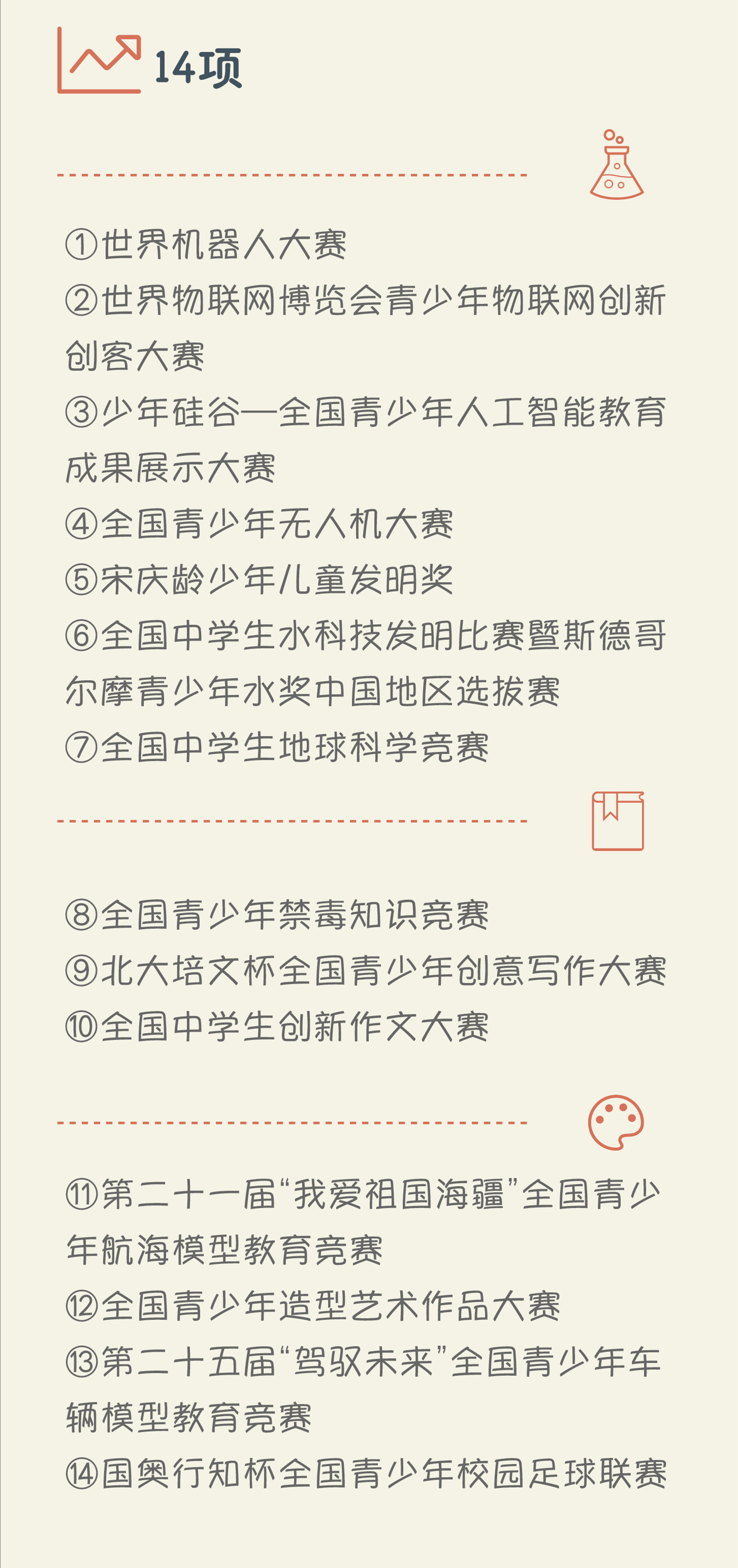
It is reported that the list of competition activities released this time was declared by the organizer independently, and was finally determined after the Ministry of Education organized experts to conduct evaluation, publicity and review.
The Ministry of Education requires that competitions entering the list should adhere to public welfare, not for profit, and achieve "zero fees".